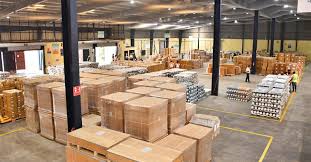Anil Mantrii, CEO Aarkesh Business Solutions LLP, advises firms to invest in technology, sustainability, compliance, customer-centric strategies, and collaboration to prepare. The e-commerce boom has deeply impacted air cargo. To cater to online retailers’ evolving needs and the growing demand for speed and reliability, industry leaders should:

The integration of artificial intelligence and machine learning is revolutionising air cargo operations.
- Invest in advanced tracking and logistics software for real-time monitoring and visibility.
- Optimise cargo handling for reduced transit times.
- Expand through cargo plane investments or collaborations.
- Implement eco-friendly practices to meet environmental concerns.
- Provide express delivery options for speed and reliability.
- Leverage data for demand forecasting and efficient routing.
- Work with e-commerce platforms for aligned strategies.
- Build trust through clear customer communication.
An all-encompassing strategy combining technology, adaptability, and customer focus is vital in adapting to the e-commerce surge.
Collaboration among air cargo stakeholders is crucial for an integrated and efficient network. Key elements include standardised processes, information sharing, integrated systems, infrastructure development, regulatory alignment, alliances, collaborative initiatives, and data-driven decisions. By promoting integration and teamwork, stakeholders can enhance the air cargo network to meet evolving industry needs effectively.
AI & ML in air cargo
The integration of artificial intelligence (AI) and machine learning (ML) is revolutionising air cargo operations. From predictive maintenance, optimised inventory management, and efficient route planning to enhanced cargo tracking, risk assessment, automation, and improved customer service, AI and ML offer automation, data-driven decisions, and operational efficiency. These advancements make air cargo more reliable and cost-effective for both service providers and customers.
Future
The future of air cargo incorporates autonomous cargo drones and urban air mobility, but it brings significant considerations and challenges. These include regulatory frameworks, airspace management, safety, infrastructure, noise pollution, environmental impact, technological reliability, public perception, economic viability, and intermodal logistics. The successful integration of autonomous cargo drones and urban air mobility hinges on addressing these considerations and overcoming these challenges to create a safe, efficient, and sustainable air cargo system.
Government’s role
Regarding government efforts to boost the air cargo sector, it’s important to note that I don’t have personal opinions. However, these initiatives are generally viewed positively. Transitioning to paperless cargo processes enhances efficiency, reduces errors, and simplifies customs procedures. Infrastructure development is essential for meeting increasing demand and positively impacting the economy and the environment. These endeavours promote efficient, reliable, and sustainable cargo operations, benefiting businesses, consumers, and the broader economy.
Trends
In the next 5–10 years, the air cargo industry will be shaped by key trends:
- Autonomous Cargo Operations: Increasing use of drones and UAVs for urban cargo delivery
- Sustainability: Focus on eco-friendly practices and electric planes.
- Digital Transformation: Adoption of blockchain, IoT, and data analytics for cargo management
- Predictive Analytics: Enhanced route optimisation and maintenance with AI
- Automation and Robotics: Efficient cargo handling through automation
- Urban Air Mobility: Expedited city deliveries
- Intermodal Logistics: Integration with ground and maritime networks
- Enhanced Security: Advanced cargo protection
Companies should invest in technology, sustainability, regulatory compliance, customer-centric strategies, and collaboration to succeed in the evolving air cargo landscape.











